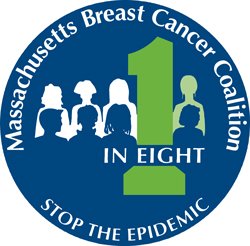On June 12, MBCC’s Executive Director, Cheryl Osimo, testified before the Joint Committee on Consumer Protection and Professional Licensure in support of the Act Relative to Toxic Free Kids (S175/H318).
Click HERE to learn more about the Toxic Free Kids Act and to find a letter template that you can use to contact your legislator in support of this proposed legislation.
I am here today on behalf on Massachusetts Breast Cancer Coalition to urge you to pass the Act Relative to Toxic Free Kids, Bill S.175 / H.318.
I am pleased to have Naga Vikram, an esteemed MBCC High School intern, joining me today!
Chemicals that cause cancer, harm brain development, and disrupt hormones should not be in products specifically designed and marketed for children. Unfortunately, we know that harmful substances, including PFAS, are found in children’s toys, clothing, school supplies, shampoos, lotions, and more. It’s time to change that.
This bill represents an important step forward to protect the health of children and future generations here in the Commonwealth.
One important provision of this bill is to ban PFAS in children’s products. Reducing exposures to PFAS is a top priority for MBCC. Scientific studies suggest that PFAS may affect different systems in the body. PFAS chemicals have been linked to a wide range of health effects including immune system toxicity, elevated cholesterol, altered mammary gland development, effects on the thyroid and liver, and increased likelihood of developing cancer. MBCC is especially concerned about how exposure to these chemicals can alter mammary gland development and may increase the risk of breast cancer later in life. PFAS in products don’t stay in products, so the presence of PFAS in children’s products can lead to exposures among children. This is especially concerning because the developing bodies of children are more sensitive to harmful chemical exposures.
PFAS aren’t the only harmful chemicals in children’s products. We also support this bill’s provisions to create a list of high priority chemicals of concern and to require manufacturers to disclose the presence of these chemicals in children’s products sold in Massachusetts. The bill also creates a state process for banning these chemicals in items made and marketed to children 12 and under.
This bill will go a long way towards protecting the health of Massachusetts children from the ill-effects of PFAS and other harmful chemicals. Passing this bill will not only protect children in our state, but also will establish Massachusetts as a national leader in protecting the health of our children and future generations.
Cheryl Osimo, Executive Director of Massachusetts Breast Cancer Coalition (MBCC)

